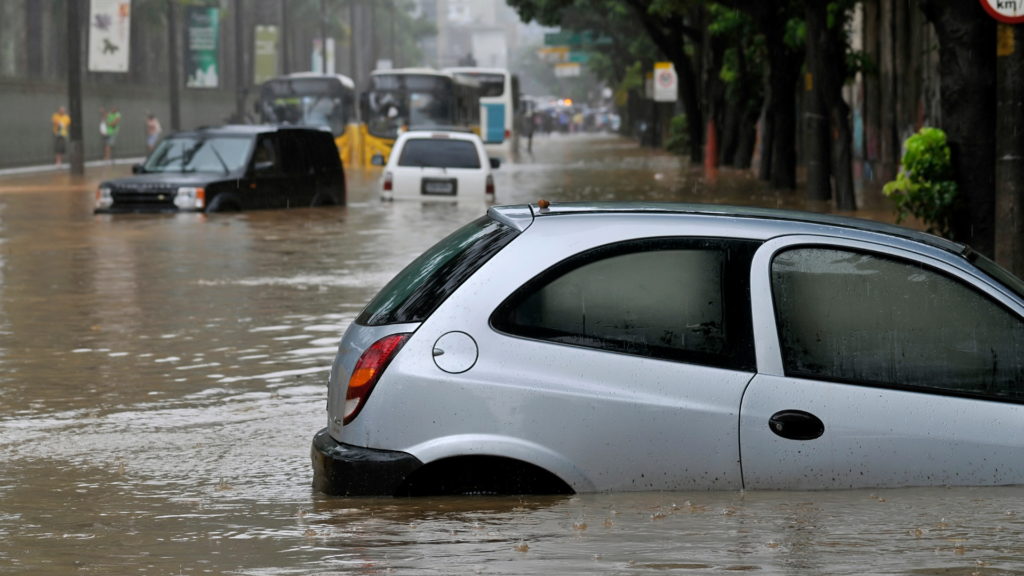A car is not just a car. It is a part of our life and much more than just a mode of transportation. We have our cars for a plethora of things. Some have a nice car, some have a nice house, and some have a nice bank balance. So, when you acquire a car, it becomes a part of your life. Unfortunately, when natural disasters like flooding strike, they can create significant stress, not only for you but also by causing extensive damage to your cherished vehicle.
One of the most common types of damage you might encounter with your car is during flooding, even when it is safely parked in your garage. Sometimes, during heavy floods, water can sweep into your garage, damaging not just the structure but also your car. In such cases, the first step is to reach out to a company specializing in Water Damage Restoration services to help with tasks like removing water from the garage, drying out the affected areas, and dehumidifying the space. And, once these water-related issues are addressed, you can then evaluate the extent of damage your car has sustained.
However, it’s not just in your garage where your car is at risk. Driving during floods can also result in significant damage to your vehicle. The extent of the damage can vary from minor water damage to a complete loss of your car if proper precautions aren’t taken. If your car sustains minor damage, it’s crucial to promptly take it to a reputable Car Maintenance Shop in your area to minimize further damage and ensure proper restoration. These professionals can assess the extent of the damage, perform necessary repairs, and offer guidance on preventive measures to safeguard your car against future flooding incidents.
Remember, if the floodwaters of a flash flood hit you, it is critical you understand the risks and take protective measures to prevent further damage to your vehicle.
Floods are a major hazard, but they are also one of the simplest ways to damage your vehicle. Here are 5 ways to protect your car against floods.
- Have enough space. The more space your car has, the more water it can absorb.
- Have a tight seal. Make sure all doors and windows are closed and all gaps are sealed.
- Have enough gas in the tank to get you to safety.
- Have enough water available to keep you and your passengers safe.
- A car with an electric power steering pump can help prevent flooding.
Begin preparations. While the threat of floods is low, the damage they can cause is real. That is why it is important to plan ahead and take action before a flood occurs.
It is easy to think that in the event of a flood, all we need to do is secure our valuables and take some precautions, but this is not the case. In fact, many of the problems that occur during major flooding events can occur in smaller-scale events if certain precautions are not followed.
Flooding can be a devastating event for both individuals and businesses. When flooding occurs, it can cause severe damage to a car or other property. The damage can not only be costly, but it can also be time-consuming.
Your car can be used to commute to work and school, or it can be used to ferry your family to get some exercise. If you’ve had a flood or other water event, you know that your car can be your only mode of transportation. The insurance industry is always looking for ways to improve their product and provide you with the best cover possible.
If you have ever been in flood, you know how frustrating and expensive it can be. Floods can cause hundreds and thousands of dollars in damage to your vehicle, and knowing how to prevent them will help protect your vehicle, your family, and your livelihood.
Filling out a claim for your car after a flood can be a hassle, a time-consuming process, or a cause for stress. The last thing you want to do is pay for car insurance to cover the damage to your vehicle. In fact, many people are unaware that they may be eligible for special low-cost protection that will get the job done better, faster, and cheaper.
A flood can easily be one of the most devastating events for your vehicle. Fortunately, there are precautions that you can take to help minimize the damage that a flood might do to your car. First and foremost, it is important to prevent flooding from happening in the first place. You can do this by simply not parking your car in areas prone to flooding, such as near a river that often runs over. However, if you have to park your vehicle in an area that is prone to flooding, it is important to be prepared for it.
Floods are one of the most common disasters that can strike almost anywhere in the whole world. They also happen at the worst possible time: during the height of summer, when everyone is on the road. Despite being common enough, floods are also one of the most misunderstood natural disasters. Most people think of floods as something that happens in the summer and for them, but the truth is floods happen all year long.

